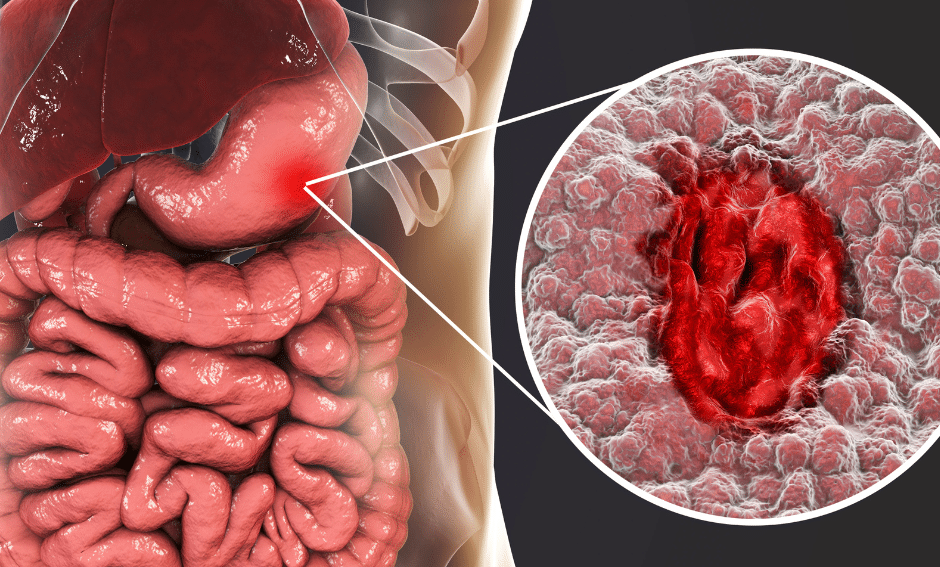6 Ways to Improve Your Digestive Health in the New Year


No matter what year it is, one of the most common New Year’s Resolutions is to lose weight and be overall healthier. In order for your resolution to come to life, you need to set a plan on how you can be healthier in 2020. What do you need to focus on that will help you feel better?
One of the best ways to improve your overall health in the new year is to focus on your digestive health. Your digestive system is responsible for abstracting the nutrients that your body needs from your food. Learn more about your digestive health and what you can do to help your digestive system so you improve your overall health and well-being.
Why is Digestive Health Important?
Your digestive system’s main job is to break down fats, proteins, carbohydrates, vitamins, and other nutrients into parts that are small enough for your body to use them. Nutrients are used for energy, growth, and cell repair. Your gut, which is also a key part of your digestive system, is home to 100 trillion bacteria that regulate hormones and eliminate toxins. It’s important that your body balances the good bacteria and the harmful bacteria inside of your gut for optimal digestive health. An imbalance can result in digestive issues.
Symptoms of a Bad Digestive System
There are many things that can hurt your gut microbiome. Stress, sleep deprivation, and a diet full of processed and high-sugar foods can cause damage to your digestive system. The good news is that if your digestive system is unhealthy, your body will show it with one of the following common symptoms:
- Upset stomach
- Unintentional weight changes
- Sleep disturbances
- Constant fatigue
- Skin irritation
- Food intolerances
6 Tips for a Healthy Digestive System
1. Eat a high fiber diet that includes both soluble and insoluble fiber
Fiber is essential for helping food move through your digestive tract. This helps limit constipation. Incorporating foods that are high in fiber, like vegetables, legumes, and fruits, can help prevent digestive conditions, including diverticulosis, hemorrhoids, and IBS.
It’s important that your diet consists of both soluble and insoluble fiber, as they both help your digestive system in different ways. Soluble fiber helps prevent watery stool, while insoluble fiber adds bulk to stool.
2. Choose lean meats
While protein is a big part of a healthy diet, it’s important that you’re choosing lean meats over fatty cuts of meat, as they lead to uncomfortable digestion. Pork loin and skinless poultry are great meat choices for a healthy digestive system!
3. Keep hydrated
Water is the key to fueling your body. One way it helps the digestive system particularly is that the fiber you eat pulls the water you drink into your colon. This creates softer, bulkier stools, which are easier to pass out of your body.
4. Manage stress levels as best you can
The more stress you have, the more likely your digestive system is going to be in overdrive. The nerves in your gut can be so influential that some researchers consider your gut your second brain. The nerve cells in your gastrointestinal tract, along with your enteric nervous system, regulate swallowing, release enzymes to break down food, and categorize food as either nutrients or waste. Extra stress can significantly impact the way your body carries out these processes.
5. Exercise regularly
In addition to helping you maintain a healthy weight, regular exercise and activity helps keep the food you eat to move through your digestive system. Exercise helps increase your blood flow towards your muscles and digestive tract, which reduces constipation. It’s important to remember to give your body enough time for digestion before you begin working out! This will help keep your energy focused on your workout and not on digestion.
6. Add probiotics to your diet
Probiotics help combat against a poor diet, antibiotics, and stress. Probiotics are similar to the healthy bacteria that is naturally present in your digestive tract. Adding probiotics can help keep your body balanced and healthy. Probiotics also help enhance nutrient absorption, strengthen your immune system, and may help break down lactose. Good sources of probiotics include yogurt, soft cheeses, tempeh, sauerkraut, and kimchi.
Top Gastroenterologists in New Jersey
If you’re concerned with your digestive health, it’s best to speak with a gastroenterologist. One of our physicians at Digestive Healthcare Center can help get you on the right track to a healthier lifestyle! For more information about our expert doctors or our three New Jersey locations, please contact us today.
Make an Appointment for Comprehensive Digestive Care in NJ
At Digestive Healthcare Center, we want each patient at our three offices in New Jersey to feel confident about their digestive health. We encourage you to contact us today to make an appointment with one of our expert gastroenterologists – don’t wait to start putting your digestive health first!
Recent Blogs
Learn more about all things digestive health and wellness by checking out our recent gastroenterology blogs.

Infusion therapy has become a vital treatment option for individuals with Crohn’s disease, offering relief when traditional medications may fall short. This method delivers medication directly into the bloodstream, providing quicker and more targeted effects to help manage inflammation, reduce symptoms, and improve quality of life. For those with moderate to severe Crohn’s disease, infusion […]

The Advancement of Ulcerative Colitis Treatment Ulcerative colitis (UC) is a chronic inflammatory bowel disease (IBD) that affects the lining of the colon and rectum. Those diagnosed with UC often experience flare-ups that can significantly impact their quality of life. Fortunately, advancements in medical treatment have made managing this condition more achievable. One option is […]

Diverticular disease and diverticulitis are related digestive health conditions that affect the large intestine (colon). With diverticular disease, small, bulging pockets develop on the lining of the colon. When these pockets become inflamed or infected, the condition is called diverticulitis. They are very common – especially after age 40 – and rarely cause problems. At […]
























